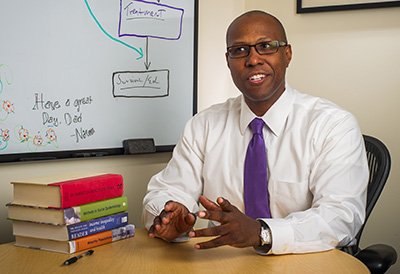By Christopher Lathan, MD, MS, MPH
When cancer strikes someone who is already facing other hardships – for example, he or she is poor, alone, or has a language barrier – the experience is very different than it might be for someone who has more resources and support.
The Cancer Care Equity Program at Dana-Farber, which is funded by the Kraft Family Foundation, helps vulnerable patients in the community obtain the cancer care they might not receive otherwise.
 For me, the idea of vulnerable patients with language and race barriers is not just theoretical. My father drove a fork lift and never finished high school; my mother was a nurse’s aide who did finish high school and was intent on my going to college. I went to medical school a bit later than most folks do.
For me, the idea of vulnerable patients with language and race barriers is not just theoretical. My father drove a fork lift and never finished high school; my mother was a nurse’s aide who did finish high school and was intent on my going to college. I went to medical school a bit later than most folks do.
Through the Cancer Care Equity Program and Whittier Street Health Center, I have a unique opportunity to bring my own background to my research and clinical work in lung cancer.
For many of our patients, having cancer might not be their number one concern. They might be figuring out how to pay the bills or find housing. Patients who are educated and empowered are likely to seek the best possible care for your cancer. Others might have a more passive attitude, such as “this is the hand I was dealt.”
We help bring “equity” to the way cancer care is offered through our Whittier Street clinic. Patients who come to us are from many different countries and are mostly people of color. About 60 percent live below the poverty line.
While we don’t provide cancer care at Whittier, we do offer consults, diagnoses, and survivorship care. We try to work around the patients’ work schedule when making appointments because some of them can’t take time off from their jobs. After the appointment is made, our multi-lingual nurse navigator follows up with a personal phone call to answer any questions.
Leading cancer care equity for Dana-Farber gives me a chance to collaborate with many other centers and research programs. We connect Dana-Farber’s research in cancer care disparities with the actual experience of patients. We can go from things we know to things we can fix.
